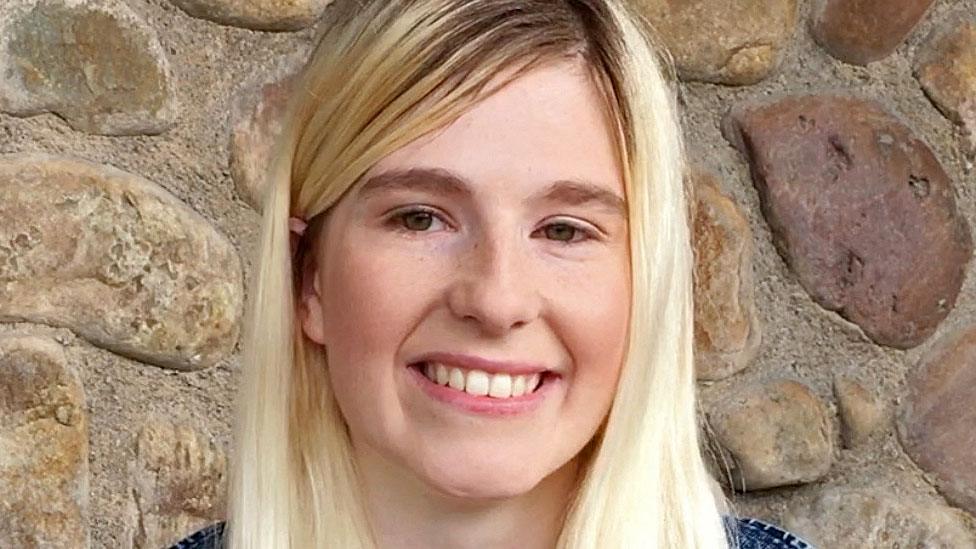Hate crime: Pupils pulled girl from wheelchair at school
- Published
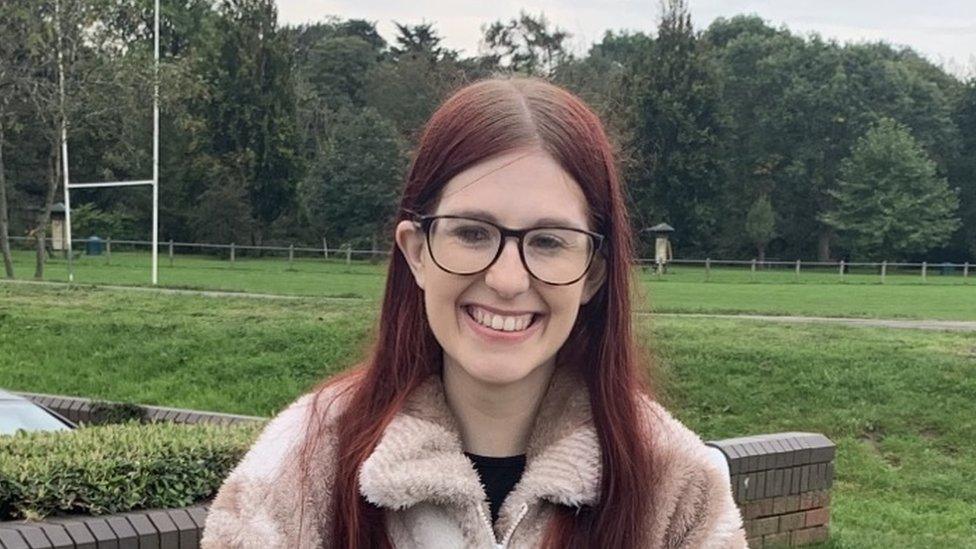
Jade Owen says the bullying transformed her from bubbly to mute
A woman with cerebral palsy has described how she was pulled out of her wheelchair by fellow pupils when she was in school.
Jade Owen, 25, from Bridgend, started using a wheelchair at the age of 11.
She said other students "would tell people not to be friends with me because they'll catch what I have."
She spoke as recorded hate crimes in England and Wales have trebled in the past decade, but fallen by 5% in the last year.
However, religiously motivated hate crimes and those against transgender people have increased.
Disability motivated hate crimes have dropped by 1%.
The latest figures, which do not include Devon and Cornwall Police, cover the 12 months to March 2023.
One expert suggested a change in police guidance on recording incidents could explain the fall, the first since the data was first collected in 2013.
"I always felt different and alienated in society but when I lost my ability to walk because of the spasticity in my legs and started using a wheelchair in secondary school the bullying got worse," said Ms Owen.
Pupils would take things out of her bag like her lunch, pencil case or homework, she said.
Her mental health deteriorated and she was eventually home schooled after years of bullying.
"I would really struggle to get up in the morning, I just wanted to be on my own. I felt like maybe the world would be better without me," she said.
"I was very bubbly, but when I was getting bullied, I was like a different person," she said. "I was mute most of the time and wouldn't speak."
Ms Owen said many people with disabilities still did not like to report abuse.
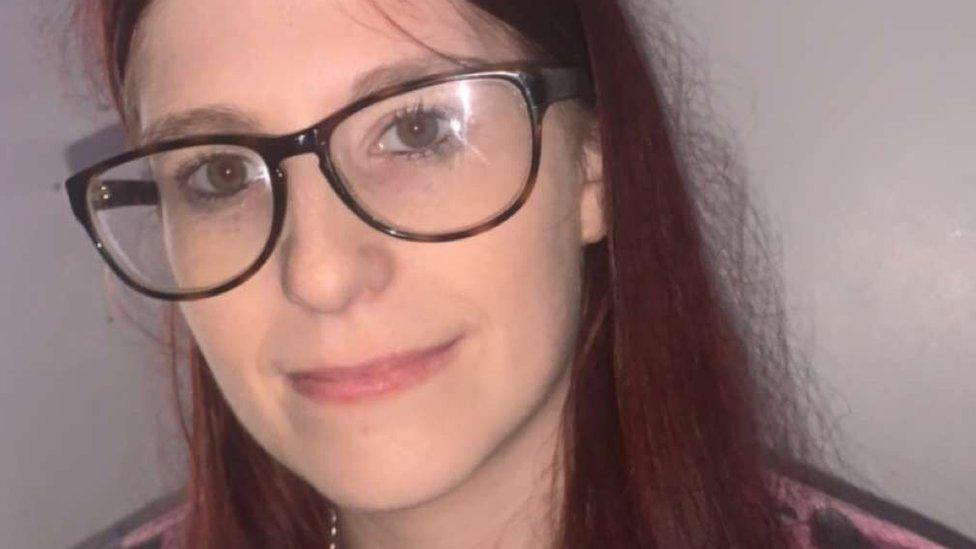
Ms Owen said people should report it if they experience hate crime
She avoided reporting her own initially after receiving comments on social media when she was fundraising for treatment in America to help her condition.
She said people on social media would say she was "faking" her disability and "not really fundraising for therapy".
She said she would remove and delete such posts, and report them to the social media provider, "but I do feel like people get away with it".
Ms Owen said she wished she had reported more of these comments and abuse as hate crimes to police, but she "didn't realise at first".
"I know now to report it and encourage others to do the same," she said.
The overall number of recorded offences rose from 41,294 in 2013 to 145,214 in the 2022-23 period.
Prof Matthew Williams, director of Cardiff University's HateLab, said: "We should question the statistics to some extent because there have been recent changes implemented by the Home Office.
"The downward trend is a welcome decline but we're still seeing a significant amount of these minority communities being targeted for who they are."
The new guidance issued to police about how incidents should be recorded, instructed officers to consider whether there was "genuine hostility", or if the incident could be considered "freedom of speech or thought".
Disability charities United Response and Leonard Cheshire said: "We need to improve the justice gap for victims of hate crime. There are real people behind these numbers and once a person has been a target of hate, they can be utterly changed."
They added hate crime should be "a key focus" and not "brushed aside".
The Home Office said: "There is no place for hate in our society, it does not reflect the values of modern Britain, and we remain committed to ensuring these abhorrent offences are stamped out."
- Published5 October 2021
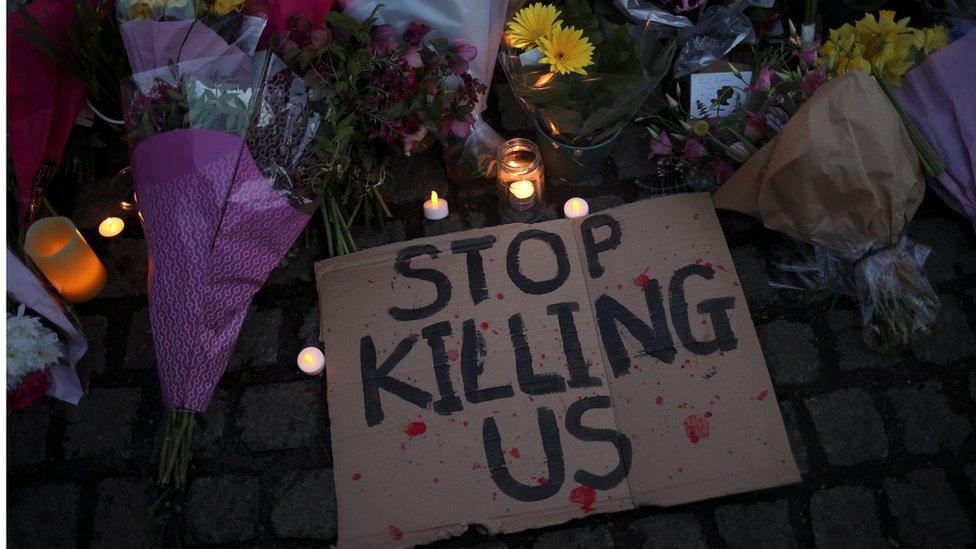
- Published6 October 2022
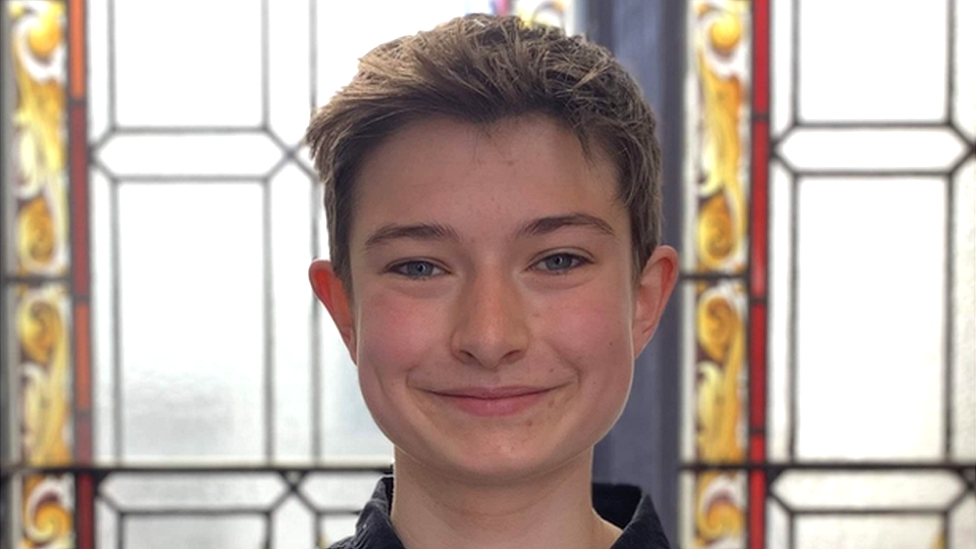
- Published18 September 2018
